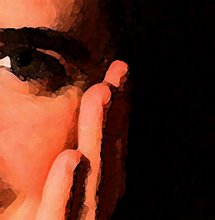This posting, alas, is not about my insatiable desire for beads, chocolate, funky shoes, chocolate beads or beaded shoes. I lifted this phrase from an essay by Wendell Berry in a book called The Way of Ignorance, itself titled after one of the included essays.
The context for "insatiable desire" is from his essay called Quantity vs. Form, in which he raises the possibility that in certain situations more might actually be less. The New York Times has recently reported that life expectancy in the United States lags that of other developed nations. Presumably most of us, if given a choice, would choose a longer over a shorter life, provided that the quality of our extended time on earth is relatively high.
Here is what Mr. Berry has to say:
"We seem to be living now with the single expectation that there should and will aways be more of everything, including 'life expectancy'. This insatiable desire for more is the result of an overwhelming sense of incompleteness, which is the result of the insatiable desire for more. This is the wheel of death. It is the revolving of this wheel that now drives technological progress. The more superficial and unsatisfying our lives become, the faster we need to progress. When you are skating on thin ice, speed up.
"The medical industry's invariable unction about life-saving, healing, and the extended life expectancy badly needs a meeting on open ground with tragedy, absurdity, and moral horror. To wish for a longer life is to wish implicitly for an extension of the possibility that one's life may become a burden or even a curse. And what are we to think when a criminal becomes a medical emergency by the beneficence of nature, is accorded the full panoply of technological mercy, and is soon back in practice? The moral horror comes when the suffering or dementia of an overly extended life is reduced to another statistical verification of the 'miracle' of modern medicine; or when a mental disease, such as the inability to face death or an ungovernable greed for more of everything, is exploited for profit."
As a society, we might want to worry about these aggregate life expectancy statistics, which put us at the bottom of the heap. I doubt Mr. Berry would think that lower life expectancy in the US, for the reasons cited in the op-ed piece, is a good thing. Rather, it is a sign of inadequacy if not outright sickness in how we go about caring for people, a result of the profit-orientation of our health care system.
But as individuals, we might want to think about the Quantity vs. the Form of our lives. What makes each of our lives complete? I am reminded of the saying, "Having heard the Tao in the morning, one can die in the evening." For those of us who don't practice or believe Eastern philosophy, will we know and be able to accept when our time has come?
Tuesday, August 14, 2007
Subscribe to:
Post Comments (Atom)




No comments:
Post a Comment